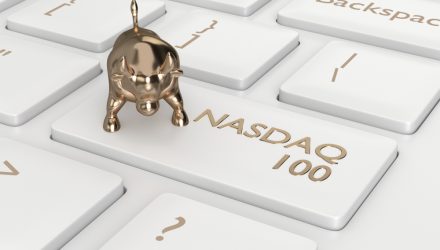The Invesco QQQ Trust (QQQ) dominated flows into ETFs in March, taking in more new assets than any other ETF available to U.S. investors.
QQQ closed the month with $197 billion in assets under management after taking in $6 billion in March. QQQ owns the most valuable stocks trading on the Nasdaq and is, by a long shot, the most popular ETF that tracks the Nasdaq-100 Index.
As ESG investing continues to surge in importance to investors, advisors should look to the Invesco ESG Nasdaq 100 ETF (QQMG) for sustainable access to the popular Nasdaq-100 Index.
Companies are evaluated for inclusion in QQMG’s underlying index based on the index provider’s ESG criteria, which considers a company’s business activities, business controversy levels, ESG risk ratings, and adherence to the principles of the United Nations Global Compact, according to regulatory filings.
In addition, the underlying index utilizes negative screens to exclude securities of companies with business activities that do not meet the eligibility criteria, relying on information from Sustainalytics, an independent provider of ESG research, ratings, and data.
Business activities that are prohibited from inclusion in the underlying index for QQMG include:
- Arctic oil and gas exploration
- Cannabis development or cultivation
- Controversial weapons
- Military weapon manufacturing
- Oil sands extraction
- Riot protection equipment and riot control weapon manufacturing
- Shale energy exploration or production
- Assault weapons and small arms manufacturing
- Tobacco product manufacturing
There are certain categories that are permitted if they typically derive less than 5% of revenues from the engagement:
- Adult entertainment
- Alcoholic beverage production, distribution, or sale
- Cannabis distribution
- Gambling
- Nuclear power production
- Oil and gas exploration, production, refining, transportation, or storage
- Extracting or generating electricity from thermal coal
- Tobacco product distribution
According to regulatory filings, the indexes also consider issuers’ business controversy levels and ESG Risk Rating Score, as determined by Sustainalytics.
Eligible issuers must also be deemed compliant with the principles of the UN Global Compact, which is an arrangement by which companies voluntarily and publicly commit to a set of values the UN believes responsible businesses should incorporate to meet fundamental responsibilities in the areas of human rights, labor, the environment, and anti-corruption.
For more news, information, and strategy, visit the ETF Education Channel.








